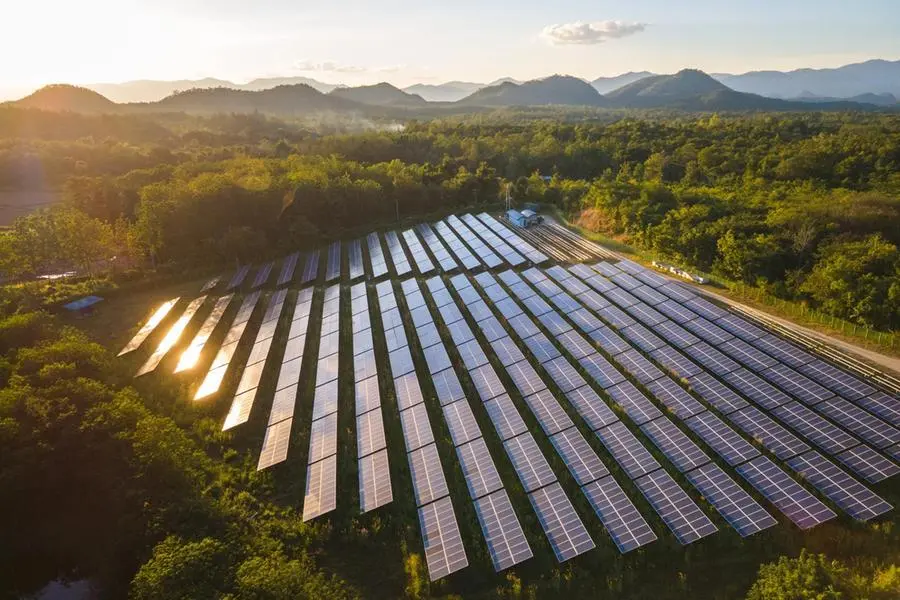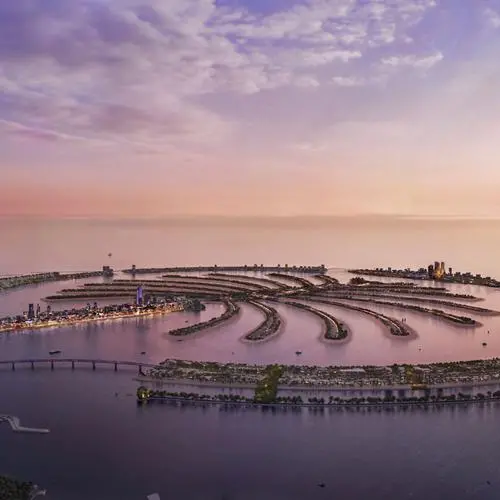PHOTO
CleanMax, a leading renewable energy company from India pioneering the 'energy sale' model in rooftop solar, is aiming for a Middle East portfolio of 200 megawatts (MW) in the next two years at an investment of $120-130 million.
Co-Founder and CEO Sushant Arora told Zawya Projects that the company, which already has a 60 MW rooftop solar portfolio in Dubai, is planning to expand operations to other emirates of the UAE and Saudi Arabia, Bahrain, and Oman.
In Dubai, it has done major projects for Amazon, the University of Dubai, and Danube Group, among others.
"We see a good potential in other emirates of the UAE and elsewhere in the Gulf region. 200 MW is a conservative number, and if Saudi Arabia takes off, it will be significantly larger in a period of two years," said Arora.
He said the company is also planning to accelerate its total global operating capacity from 750 MW to 2,500 MW in the next three years. In South-East Asia, for example, CleanMax is expanding beyond Thailand to the Philippines, Indonesia, and Vietnam.
In India, CleanMax has installed 550 rooftop solar projects for 170 corporates with a total operating capacity of 250 MW. Additionally, it operates 450 MW of large-scale solar and wind farms to supply clean energy to its corporate customers.
Arora said the company's project portfolio includes rooftop solar, open access solar farms, standalone wind farms, and wind-solar hybrid solutions.
It currently serves over 150 customers globally, including Facebook, Adobe, Cargill Foods, Volvo, Tata Group, Mahindra Group, Grasim, MG Motors.
The UAE entry
The CleanMax co-founder noted that using Dubai as a launchpad in 2017 for the company's first international expansion was prompted by the UAE's clear vision and policies and ambitious targets for clean energy.
"It was the right place and time to replicate our model successfully deployed in India," he said.
The company's success in the Indian market is based on a unique business model of developing projects on a turnkey basis and providing cheaper-than-grid clean power without any upfront investment from its customers.
CleanMax realised early on that the 6-8 years payback period for rooftop solar is much more than companies were prepared to wait for.
"Figuring out the financing model to make it viable to the clients was the one key innovation we did, which was a game-changer. The outcome was the OPEX model of build, own, and operate," said Arora.
"Clients need not spend their capital or develop expertise to do it [the projects]. CleanMax will bring clean-tech expertise as well as finance. We see ourselves as sustainability partners to customers, rather than just a solar or a wind energy company," he explained.
OPEX advantage
While the company also does CAPEX projects, where the customer gets his solar plant and bears all the risks of keeping it operational, up to 80 percent of CleanMax's business comes from the OPEX model.
Arora further noted that in the CAPEX model, for the client, buying solar panels would entail selecting what panels to buy, combing through 20 different components, looking at the compatibility of those components, choosing between their specifications, working around warranty terms, worrying about Serice Level Agreements in case of failures, bother about downtime and at the end, deal with AMCs who have no incentive to perform.
He said: "In the OPEX model, clients find in CleanMax an enterprise that has been handling these issues a hundred times and would be doing it for them, bearing the risk and having a stake in keeping the systems running. In our model, they are signing up for a certain number of solar electricity units at a certain price; and therefore, are signing up for certain savings for a certain period."
He also claimed that the company has successfully saved electricity costs by up to 40 percent for several of its clients in India, which has paved the way for favourable comparisons from customers elsewhere.
Procurement
To ensure diversity in procurement, the company has focused on procuring most of the requirements for the project from the region or country where it is located.
Arora said high-quality and right-priced electrical goods, panels, cables, switchgear, breakers, and other components are locally available in the Middle East. For solar panels, though, the company relies on imports.
Foreign funding
In August 2021, CleanMax raised $200 million from Augment Infrastructure to invest in Indian operations and other geographies.
With the $200 million from Augment yet to be deployed entirely, Arora said the company is focussing on markets where it doesn't see much competition.
In December 2021, the Danish Investment Fund for Developing Countries (IFU) announced it is investing $34 million in CleanMax. Local business newspaper The Mint had reported that CleanMax will use this investment 'to accelerate its rapid growth in the commercial and industrial renewable energy space in India, as well as in the Middle East and Southeast Asia.'
In 2017, the International Finance Corporation (IFC) and American private equity company Warburg Pincus had invested in the company.
Arora said the company is open to various funding options available in the market today. "IPO is one of the options, but the company wouldn't go for it in the next couple of years. The company's management constitutes the founding members largely, and they remain invested in it," he said.
He also affirmed that CleanMax would stick to the 'developer' space of the renewable energy value chain, which involves long-time ownership, operation, and maintenance of projects instead of Engineering, Procurement, and Construction or even actual production of panels and components.
"We are not interested in manufacturing. We are focused on the deployment of these technologies. We put up the solar plants and wind farms and own them for life," he said.
(Reporting by SA Kader; Editing by Anoop Menon)
(anoop.menon@lseg.com)
Disclaimer: This article is provided for informational purposes only. The content does not provide tax, legal or investment advice or opinion regarding the suitability, value or profitability of any particular security, portfolio or investment strategy. Read our full disclaimer policy here.
© ZAWYA 2022





















